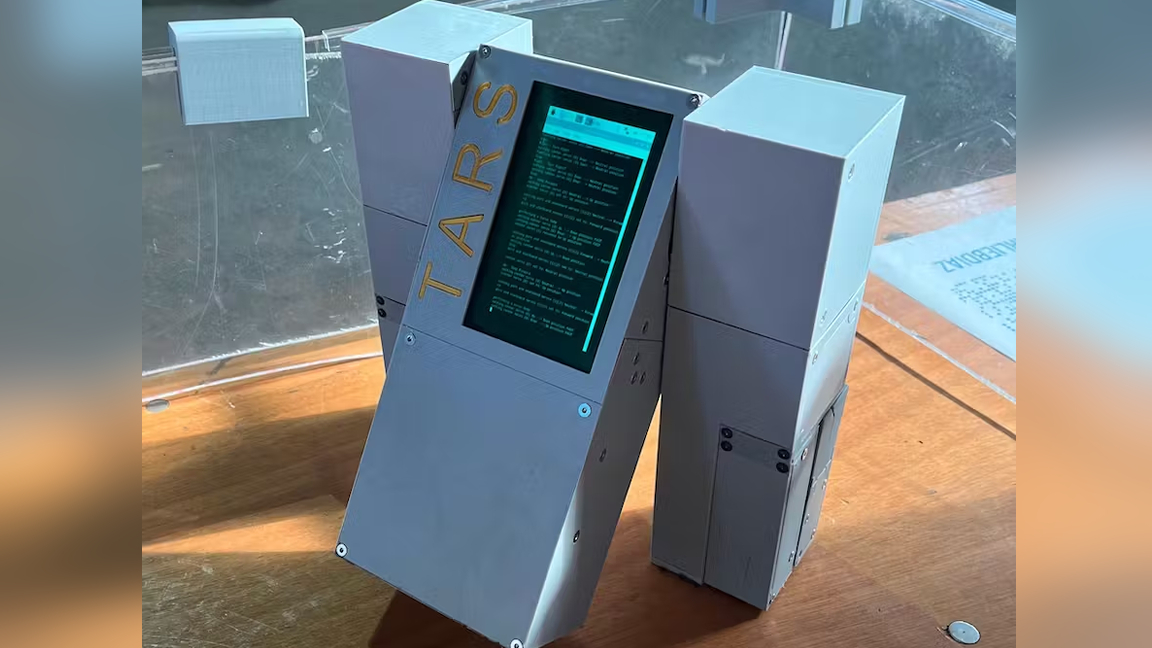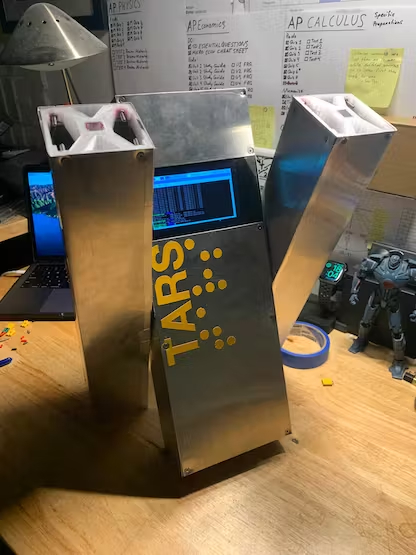Raspberry Pi Brings Interstellar's TARS Replica to Life

Get Tom's Hardware's best news and in-depth reviews, straight to your inbox.
You are now subscribed
Your newsletter sign-up was successful
If there’s one thing the Raspberry Pi and maker community at large is good at, it’s creating replicas of cool stuff from the imaginative works of science fiction. From AI-powered Terminator skulls to pit droids from Star Wars, there’s no shortage of creativity to explore. Today we have another impressive replica to share, this one being a working TARS replica from the movie Interstellar created by maker and developer Charlie Diaz.
According to Diaz, the goal was to not only create a visual duplicate of the robot but also to add functionality that would bring it to life. It took several iterations to get to where the project is today but the end result was well worth all the effort. This impressive TARS replica uses our favorite SBC, the Raspberry Pi, and is capable of locomoting for hours without issue.
This success didn’t come without its fair share of trial and error. TARS has a unique design and the walking mechanism took a bit of work to perfect. Diaz explained how the first version didn’t meet his expectations and failed to walk for long without components breaking down and causing problems. Making adjustments like swapping out heavier components for lighter versions made a huge difference in its performance.

There are 3D-printed components used to mount the legs to the main body with CAD files available for anyone who wants to check them out. It’s driven by a Raspberry Pi 3 B+ alongside an Adafruit 16-channel PWM servo driver connected to 4 SG90 micro servo motors and 5 metal gear servos. A 5-inch Elecrow display is mounted to the front and a bluetooth remote is used for remote control.
Operating system-wise, Diaz is using Raspberry Pi OS. He was also kind enough to make the project open source so you can find all of the code used in the build over at Hackster. The walking functions and remote operations are handled using a custom Python script.
If you want to see this Raspberry Pi project in action, you can check out the full project in greater detail over at Hackster. There Diaz not only shows off his hard work but also gives some insight into its development progress over time.
Get Tom's Hardware's best news and in-depth reviews, straight to your inbox.

Ash Hill is a contributing writer for Tom's Hardware with a wealth of experience in the hobby electronics, 3D printing and PCs. She manages the Pi projects of the month and much of our daily Raspberry Pi reporting while also finding the best coupons and deals on all tech.